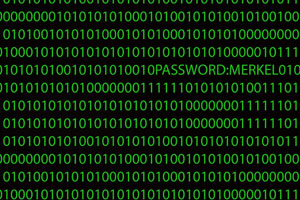Report slams "unscrupulous" US surveillance over world, China
(Xinhua) Updated: 2014-05-26 16:49Surveillance hegemony
The report came days after the US slapped ungrounded cyber-espionage charges against five Chinese military officers.
However, according to the report, it is the US itself that is conducting "unscrupulous" surveillance over the rest of the world, adding that Washington must "cease spying operations that seriously infringe upon human rights, and refrain from causing stress and antagonism in global cyber space."
"The revelations about PRISM and other programs demonstrate that the US has mounted the most wide-ranging, costly, long-term surveillance operation in the history of the Internet," the report said.
An article in the Washington Post on Aug. 30, 2013, reported that the budget request of the National Intelligence Program for fiscal 2013 had boasted 52.6 billion US dollars, of which spending on cyber operations accounted for 4.3 billion US dollars, nearly 8 percent of the total.
Targets of the widespread secret surveillance by the US government include, according to the Guardian, 35 world leaders such as Ban Ki-moon, Secretary-General of the United Nations, German Chancellor Angela Merkel and Brazilian President Dilma Rousseff.
Citing documents leaked by Snowden, Germany-based Der Spiegel revealed that the NSA surveillance might have snooped on as many as 122 foreign leaders.
The US secret surveillance also targets ordinary citizens worldwide, as documents leaked by Snowden suggested that the NSA collects location data from nearly five billion cell phones and some two billion short messages each day.
The Washington Post revealed that the NSA also infiltrated into the data centers of Yahoo and Google around the world and collected at will data of hundreds of millions of user accounts.
Reports from The Guardian and The New York Times revealed that the NSA also tapped smartphone apps such as Angry Birds and Google Maps to gather personal data including age and location.
Monday's report stressed that the seamless cooperation among the intelligence agencies, government and the private sector, with their big-data processing capabilities, allows the surveillance to extend in scope, seemingly without limit.
The NSA has reportedly planted software and devices into some 100,000 computers worldwide since 2008, giving it the capability to monitor them around the clock and launch attacks even when they are offline.
Citing a top secret presidential directive issued in October 2012, foreign media reported that Barack Obama has ordered his senior national security and intelligence officials to draw up a list of potential overseas targets for US cyber-attacks.
The directive also stated that what it called Offensive Cyber Effects Operations (OCEO) offered unique and unconventional capabilities to advance US national objectives around the world with little or no warning to potential adversaries or targets.
The report said the US government does not just target the Internet, but also key industries such as finance, transport, electricity and education, and the NSA's eavesdropping targeted overseas politicians, international organizations and business leaders.
The Der Spiegel reported in December last year that the NSA had broken almost all the security architectures designed by major companies, including those of Cisco, Huawei, Juniper and Dell.
Friday's report noted that the exposure of the PRISM program prompted worldwide criticism of the US, even from its allies. Angela Merkel said, "We need trust among allies and partners. Such trust now has to be built anew."
"The irony is that exactly what they are doing to us is what they have always charged that the Chinese are doing through us," said William Plummer, a senior Huawei executive, in March when commenting on reports that the US National Security Agency hacked into the company's systems.
Snowden said exposing the PRISM program is to show the "hypocrisy of the US government when it claims that it does not target civilian infrastructure, unlike its adversaries."
Full text: America's Global Surveillance Record
|
 US attacks China's cyber space |
 |
- More female officials caught in corruption
- Whampoa veterans recorded with glory
- Police bust 9 terrorist groups in Xinjiang
- Knife-wielding attackers seized in Xinjiang
- New regulation leads to drop in petitioned cases
- Hunan plant shut as probe into lead poisoning begins
- Police boost efforts to combat gambling
- Project offers jobs openings to legal experts
- Experts: Dog meat festival 'illegal'
- Nation looks to upgrade
pipeline networks






